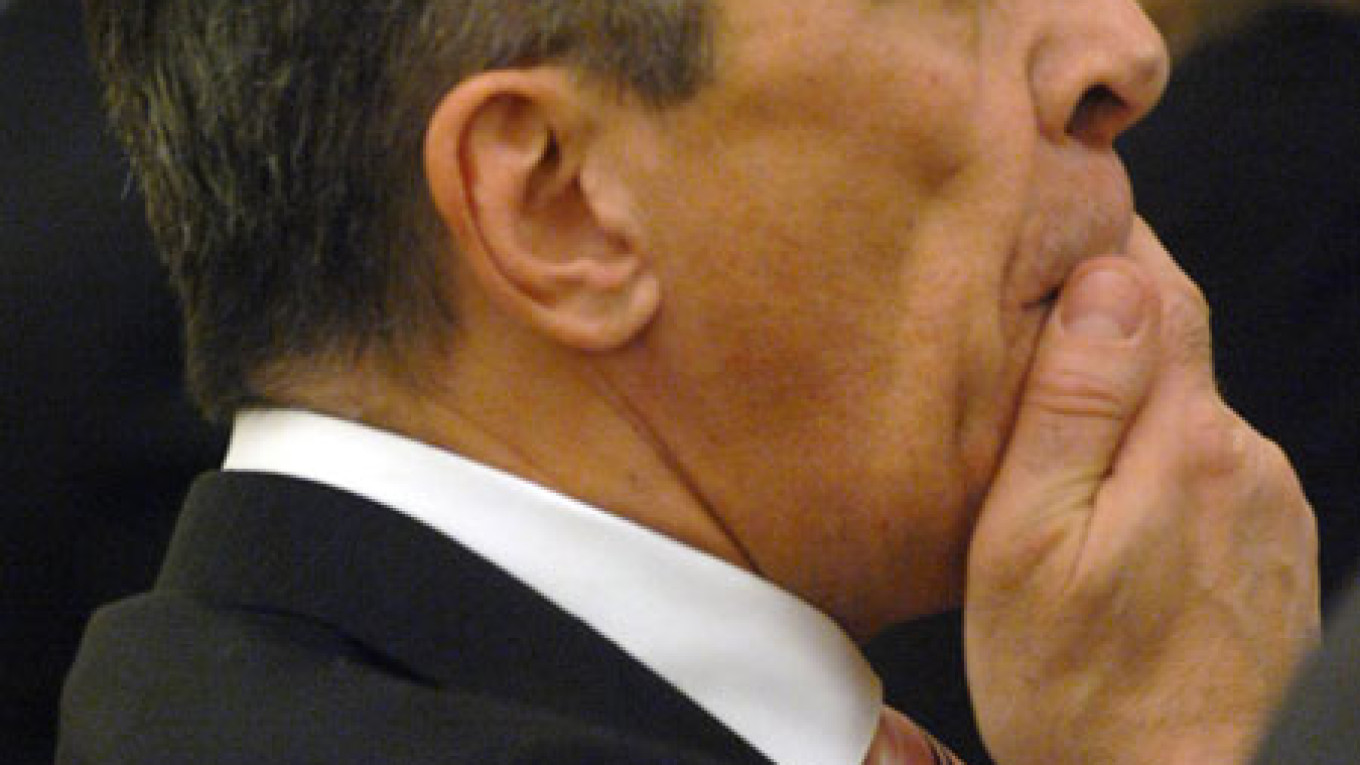Russia's foreign policy should become much friendlier in order to attract more investment, especially from the West, according to a leaked Foreign Ministry paper.
The document, titled "Program for Effective Use of Foreign Policy in the Long-Term Development of Russia," amounts to a new, softer foreign policy after years of hostile relations with the West, according to Russian Newsweek, which first published the document.
Officials at the Foreign Ministry and the Kremlin confirmed the document's existence Wednesday, but they rejected the notion that it amounted to a new doctrine.
The text is simply a response to President Dmitry Medvedev's call to make foreign policy a driving force for foreign investment, a senior Foreign Ministry official told The Moscow Times, requesting anonymity because the document has not been officially released.
"The president set a task of helping to set up favorable conditions for economic growth," he said.
In his state-of-the-nation address last November, Medvedev called on the Foreign Ministry to become the locomotive driving foreign investment to Russia —? money that he said was needed to implement his plan to modernize the economy.
The document calls for better relations with the United States and the European Union to achieve the country's economic goals.
Russia needs to forge "modernizing alliances" with its Western European partners and the EU as a whole to attract foreign capital, Foreign Minister Sergei Lavrov wrote in the introduction to the 13,000-word paper, posted on Russian Newsweek's web site.
"The program's spirit is a foreign policy with neither friends nor enemies but only interests," the magazine said.
But the document also calls for exploiting the economic crisis to acquire industrial and energy assets in former Soviet republics — countries where Russian influence is often rejected as imperialism. For instance, it defines the three Baltic states as an area of "seriously devalued national assets" that is "no longer attractive for investment from EU members."
It was unclear Wednesday if and how the text would translate into real policy changes.
Medvedev approved a draft document in February, and it has been sent to the government, where it is currently being finalized by First Deputy Prime Minister Igor Shuvalov, Newsweek reported.
But the presidential administration denied on Wednesday that Medvedev had given his approval.
"The president so far has no relationship whatsoever with this document," Kremlin spokesman Alexei Pavlov said.
Pavlov also denied that the paper amounted to a new strategy. "Russia does not have two-year terms for its foreign policy strategy," he said.
In 2008, Medvedev signed a new foreign policy strategy that granted unprecedented rights to Prime Minister Vladimir Putin and affirmed the course set during Putin's presidency.
The strategy's release coincided with a keynote speech by Medvedev to the country's ambassadors in July 2008. The so-called ambassadors' assembly convenes every two years, and the next meeting will be in July.
Analysts warned against expectations that the document was the official basis for a softer foreign policy.
"The main question is not what is written in a doctrine. The main question is what will happen in 2012," said Nikolai Zlobin, director for Russian and Asian programs at the World Security Institute in Washington.
Medvedev's term ends in 2012, and both he and Putin have left open whether they will stand in the presidential election that year.
Despite Medvedev's softer rhetoric, the country's foreign policy has actually seen a toughening during his presidency, Zlobin said. As examples he cited the 2008 war with Georgia and the subsequent recognition of Abkhazia and South Ossetia as independent, as well as Moscow's decisive support for pro-Russia politicians in Ukraine and Kyrgyzstan.
"President Putin said very strong anti-Western things, but actual policy was often much softer. Under Medvedev, we are seeing the opposite," Zlobin said.
Alexander Konovalov, president of the Institute for Strategic Assessments, a think tank, said the paper might serve as a guideline for the rest of Medvedev's presidency but could not become a doctrine. "Otherwise, it will be hard to square with the current military doctrine," he said.
Released in February, Russia's new military doctrine includes NATO's expansion on a list of “military dangers.”
But Andrew Somers, president of the U.S. Chamber of Commerce in Russia, said he welcomed the message that foreign policy should actively help economic ties.
"This is a very healthy trend, consistent with [President Barack] Obama's statements that U.S.-Russian ties should have more economic substratum," he said.
Increased economic partnerships between both countries would make it easier to solve political problems, he said.
A Message from The Moscow Times:
Dear readers,
We are facing unprecedented challenges. Russia's Prosecutor General's Office has designated The Moscow Times as an "undesirable" organization, criminalizing our work and putting our staff at risk of prosecution. This follows our earlier unjust labeling as a "foreign agent."
These actions are direct attempts to silence independent journalism in Russia. The authorities claim our work "discredits the decisions of the Russian leadership." We see things differently: we strive to provide accurate, unbiased reporting on Russia.
We, the journalists of The Moscow Times, refuse to be silenced. But to continue our work, we need your help.
Your support, no matter how small, makes a world of difference. If you can, please support us monthly starting from just $2. It's quick to set up, and every contribution makes a significant impact.
By supporting The Moscow Times, you're defending open, independent journalism in the face of repression. Thank you for standing with us.
Remind me later.


